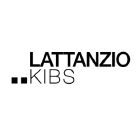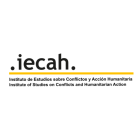WORKING WITH DG ECHO AS MEMBER STATES' SPECIALISED AGENCIES | 2021 - 2027
COMMUNICATION WITH DG ECHO

Credit: 2019_EU
REGULAR AND TRANSPARENT EXCHANGE OF INFORMATION
In a partnership, it is essential to maintain regular and transparent exchange of information. Particularly in humanitarian aid, it might be necessary to adapt quickly the action and activities to the evolving context.
As regard the action, the partner must keep the information stored in the APPEL up to date, provide any information requested, and ensure that the Commission (DG ECHO) is informed as soon as possible especially in the following cases:
- Circumstance likely to affect significantly or delay the implementation of the action or the fulfilment of its contractual obligations;
- When the partner becomes aware of corrupt, fraudulent, collusive or coercive practice in breach of the contribution agreement.
MEANS OF TRANSMISSION
In most cases, communication will be ensured through APPEL and through the desk officer in charge of the Action.
Regarding particular questions on FFPAs, please contact ECHO-APPEL@ec.europa.eu.
DATE OF COMMUNICATION
Depending on the modality of communication, the following is the date of receipt by DG ECHO:
- Communication via APPEL: the day of the successful submission. After submitting the document, the partner will receive a message confirming the successful submission.
- Communication by email: the date of successful dispatch (if it was sent to correct address).
- Electronically (ARES): date of Qualified Electronic Signature on the document.
LANGUAGE
The working languages are French or English.
The Model Grant Agreement will normally be concluded in the language in which the e-Single Form is filled in. In case of signature of a Humanitarian Aid Contribution Agreement, this is concluded in English only, while in the e-Single Form, Partners may choose to submit the proposal in French or English.
Subsequent communications will be made in the language of the Agreement.




